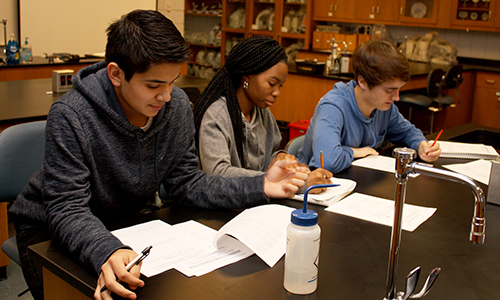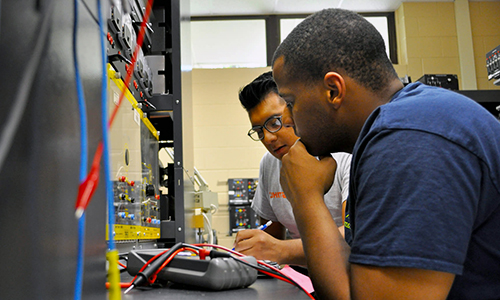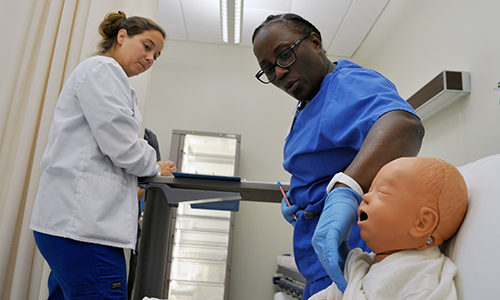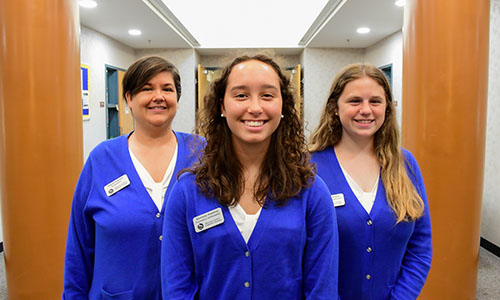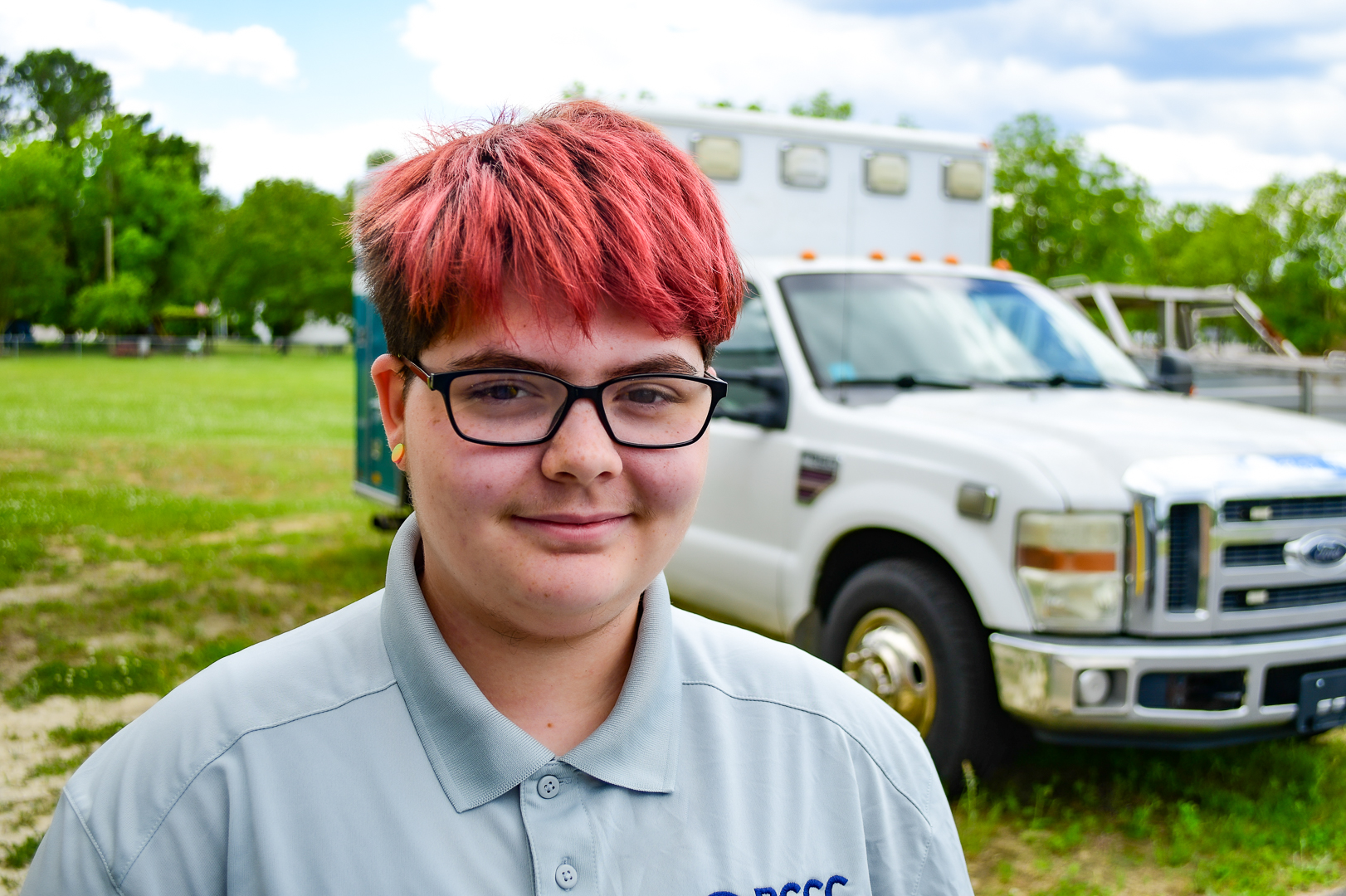
Empathy in an Emergency: Cole Faucett
Early college high schools are an innovative way to help bring college within the reach of North Carolina residents, but sometimes they succeed in unintended ways. While many students at Beaufort County Early College High School (BCECHS) graduated this May with an associate degree or two from Beaufort County Community College (BCCC), Cole Faucett left with a high school diploma and an Emergency Medical Technician Basic Certification. Only weeks after graduation, he is already working with a medical transport company earning a living wage.
“I decided to go with EMT because my mom had a lot of health problems like cancer and seizures and all sorts of stuff,” says Faucett. “Throughout my whole life, I’ve had a lot of experiences with EMTs, and they were always kind to her, whereas a lot of other people were not.”
BCCC offers short-term training programs such as EMT, firefighting, AC/heating technician, pharmacy technician, and nurse aide. These programs are available to high school juniors and seniors, and some early college high school students take these classes in addition to or in place of their associate degree. This year’s graduating class at BCECHS had three students who earned short-term credentials: two earned their Nurse Aide I Certification, and Faucett earned his EMT Basic.
“It seems exciting, and you get to make a real tangible difference to people that you can see directly,” he says. His experience with EMTs means that he is bringing an additional layer of compassion to his career.
“I’ve noticed that there is a lot of quick judgement, especially toward people who have some history of drug abuse,” he says, “and I’ve seen the duality that, yes, this person has a drug problem, but that doesn’t negate that they have valid health concerns, and that they deserve to be treated with respect and humanity despite that. I’ve seen both sides of that.”
“The way that you speak to people and your demeanor is important,” he says about compassionate care. “You don’t want to be rude to someone; you want to be kind. See what they’re comfortable with. Ask them questions in a polite way. Don’t make assumptions.”
Taking a short-term certification class can be very different for a high school student. These classes have a great deal of age diversity, so classmates will bring different life experiences and backgrounds into the classroom.
“There’s a collective experience when you take everyone's life into consideration in what they have gone through,” he says. At the same time, his academic background has helped, as has his personal experiences with people with disabilities and medical problems.
He plans to get his Paramedic Certification, and complete the Associate in Applied Science in Emergency Medicine, as well as a bachelor’s degree. He even has plans to attend medical school and continue in emergency medicine.
Part of the appeal of EMT for him is that it is a short-term program, where he can secure a job in the field after a single semester. He is already training with the medical transport company AmbuCare. He can keep earning more credentials while working in the field, and he can command a higher income and practice his skills more than if he were to work a part-time service job.
These are considered “stackable credentials,” where students can choose how far they continue their education. These programs appeal to people who do not have the luxury of devoting two to four years to college, and they position them well with fields with unmet labor needs, such as healthcare.
“The pay jump of having a certification that you can get in one semester versus working non-skilled jobs for two years, it's a big difference,” he says.
Originally, he planned to study dentistry, but he was surprised to find how much the EMT program appealed to him.
“It interesting and engaging in a way where standard office work, I imagine, isn't,” Faucett says. “There's always a chance to learn more, which is true about every medical profession, but I think even more so with emergency medicine. It’s the most extreme cases that you're going to get. You really save people's lives, or at least try your best to make a difference for them.”
When your career is one emergency after the next, it is important to think about how to sustain the needed level of compassion without burning out.
“What's sustainable to one person isn't sustainable to others,” he says. “I know people who are way past their retirement age who are still in the trucks out there, or people who get into it in their forties and fifties. Me personally, I don't know if that would be sustainable for me, which is why I want to go higher up and get the doctorate.”
His instructor explained that EMS providers will have debriefs to discuss traumatic events, and she has stressed self-care and advocates for therapy and medication, where needed.
“You can be the good thing [your patient] remembers from that day,” says Faucett. “Like the general theme is to be the calmest person in the room. You have that opportunity to be a stable, positive point in the worst day of somebody's life. It's an honor, in a way, to be able to try to make a difference for them.”
The path to EMS has not been an easy one for Faucett, but that journey has made him ready to handle the crises that patients face and deliver the compassion and strength they need on their worst day.

